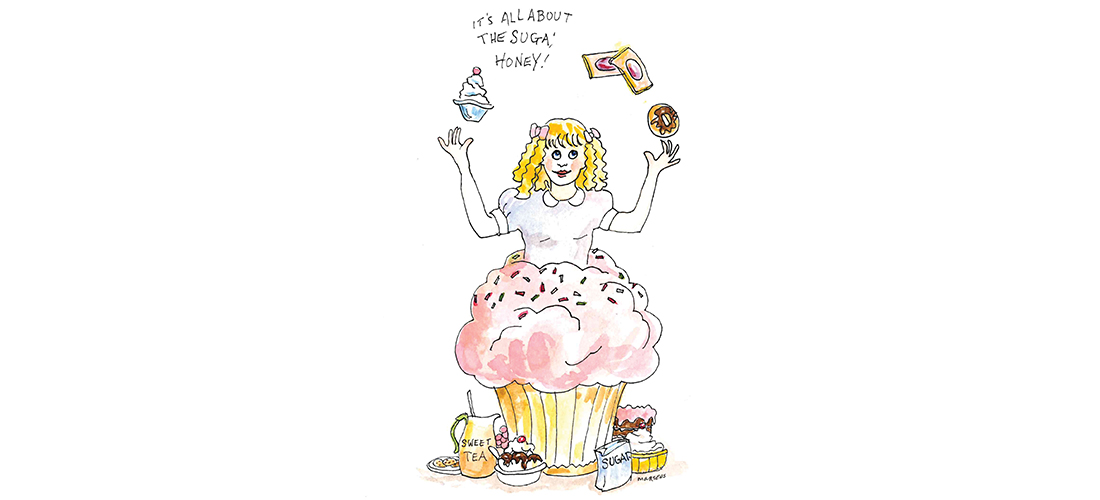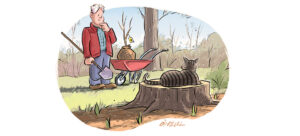
Home for the holidays, where it’s not necessary
By Haley Ray
“I bet it’s because you grew up in the South,” my Southern California born and bred college roommate asserted one evening. We had been discussing food, and I shared my loving, yet turbulent, relationship with dessert. Cadbury chocolate bars, pecan pie, bread pudding, crème brûlée, cheesecake, I do not discriminate when it comes to sugar. Sometimes the addiction runs rampant and I find myself racking up two to three sweet treats a day. When that happens, I have to go cold turkey and swear off all dessert for weeks, like breaking up with a boyfriend you know is bad news but has a charmingly consistent way of wriggling back into your heart.
My roommate, who “really doesn’t like eating dessert,” had reasoned that this appalling sugar habit must be unique to the Southeastern chunk of the United States, where sweet tea is king and comfort food, queen. Bless her heart. I informed her that I had actually spent my formative years in North Carolina eating meals comprised of grilled salmon and veggies. Sugar consumption had a strict parental control, and it was rare to find a box of cookies or a pint of ice cream in the kitchen. I had to get my fix at friends’ houses. I didn’t taste sweet tea until high school, since my parents — Michigan natives — thought it was a disgusting excuse for iced tea.
Still, despite the evidence proving otherwise, my roommate couldn’t be pried from her initial conviction. I didn’t know what else could help her understand that this was a nationwide epidemic, and not at all special to the South. The fact that the third roommate in our Los Angeles apartment was from Boston and also possessed a sizable sweet tooth did nothing to sway her. And Massachusetts doesn’t even have sweet tea.
So I let the issue slip from conversation, certain that no matter what I said she would still hold poor North Carolina accountable for corrupting my food preferences. Since moving west, misconceptions of my home state were a common theme in conversations. I grew accustomed to defending the South, usually to people who had grown up in the promised land of California. The Southern variety of Californians, specifically long-term residents of Los Angeles and Orange County, seemed to think I had been raised deprived of modern culture, eating fried chicken for breakfast, and driving unpaved roads.
After getting over the insult, I was entertained by the confidence behind their assumptions. After knowing me for all of two weeks, one friend wondered why my parents didn’t simply uproot their lives and follow me to California if they missed their only child. “I think they would be much happier here,” she commented, as we idled in brutal Los Angeles traffic, watching a smoggy sunset. I’m sure the suggestion came from a good place, no more controversial than recommending vitamin C for a common cold or yoga for a tight hamstring. To her, crowded SoCal probably seemed like a wonderful spot to live out retirement years, though she had yet to visit any state in the South, much less Pinehurst, North Carolina.
I don’t blame Californians for this particular strain of regionalism. The left coast state has a long tradition of existing as the land of milk and honey, the golden paradise of America where anything is possible. This tradition has saturated California’s caricature in the media for decades, and will most likely continue for decades to come.
Californians are accustomed to transplants, lured by the state’s promises of success and wealth, all perpetuated by popular culture. Shows like The O.C., Beverly Hills, 90210, Entourage and Baywatch splash palm trees and beautiful coastal California homes on television screens. Iconic movies including La La Land, Vertigo and Clueless sculpt the nation’s collective view of the state. They, on the other hand, believe Gone With the Wind and The Dukes of Hazzard are the pinnacle of Southern culture. Portrayals of the Southern pace of life are unerringly unmodern, the accents thick, and the characters slow to understand essential contemporary values, like good education and dentistry. Most media depictions contain overarching stereotypes, but those of Dixie feel far more dated.
As a North Carolinian living in California, I started smiling when people balked at my lack of twang or how frequently I ate avocado, and accepted that they might never understand the virtues of my homeland. The open-minded, diverse communities of the American West have their advantages, but I’ll happily forfeit a coast of balmy palms to celebrate Christmas in the land of pines. PS





